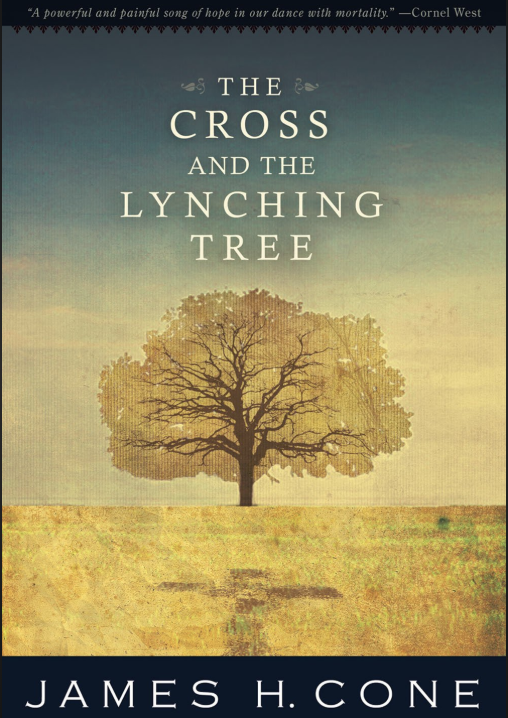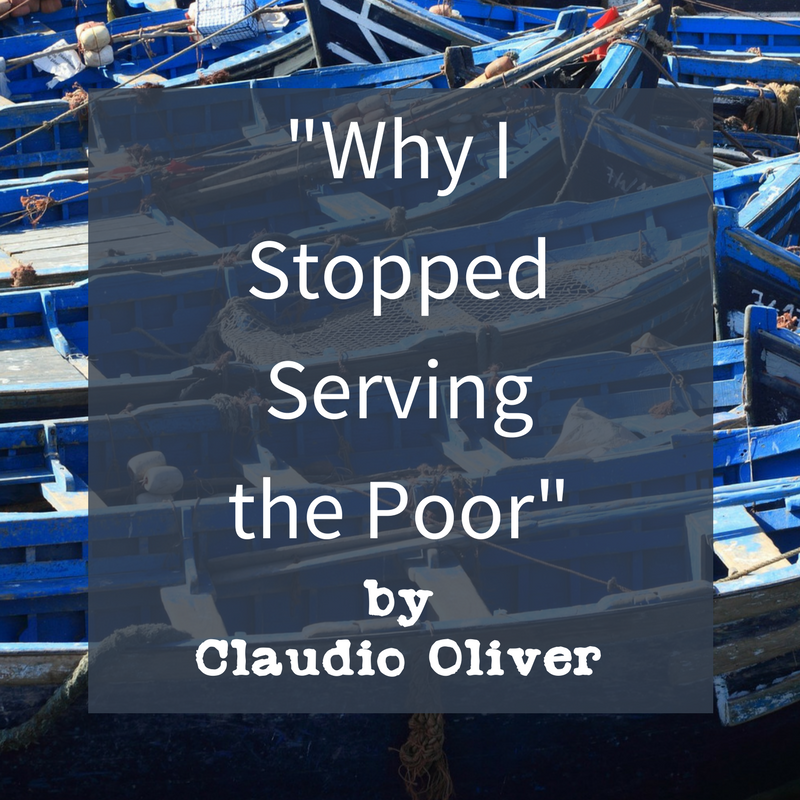|
I read 45 books in 2019. It’s not something I’ve done probably since grad school, although there I totally skimmed! I’m grateful for the opportunity. Most of these books were read by my ears (listened to on audiobook, yes that still counts!) And a few were read by my eyes. It really is because of my long commute that I have the time to read this much, and two years ago my New Years Resolution was to read two books a month. So please don’t feel intimidated by this number, but know that it’s taken me a long time to get here, and I’m proud, grateful, and hopeful next year I can read as many.
Here’s a few life changing books I read this past year. Happy 2020 to you all! Glorious Weakness, Alia Joy Prophetic & poetic, this book is a love song to a very gooooood God no matter our circumstances. If you haven't read it, whether you are male or female, empty-handed or not, sick or well, struggling or thriving, deconstructing or reconstructing, this book will bring you back to the God you always knew existed (but more often you've learned about a Yaweh cloaked in someone else's clothes because of life, church power, and the greed of the American dream.) "Maybe all of life is just a journey back to the heart of God, back to the garden where we saw His face and He called us good. Back to the place where we remember who we are by knowing who He is." I’m Still Here: Black Dignity in a World Made for Whiteness, Austin Channing Brown “The white Church considers power its birthright rather than its curse.” We so often talk about how we need to include the voices on the margins but silence those same voices even when they are already sitting at the table, when they are asking questions with answers that might reveal our greed for power, when they seem angry and we don’t want to ask why they are protesting against the status quo. When they kneel when we think they should stand, and stand when we think they should kneel. We silence Dee and Austin and so many others who have a prophetic perspective of Christ that we white Evangelicals desperately need. And it is to our collective detriment. We want their faces in our marketing pictures, maybe even their names on our payroll, but we don’t want their ideas, their initiatives, their pushback, their balance, their accountability, their prophecy. Because power is our birthright not our curse. You can read my blogpost on I’m Still Here. Reconstructing the Gospel: Finding Freedom from Slaveholder Religion, Jonathan Wilson-Hartgrove Powerful, heart-wrenching, and eye-opening. I've been wanting to read this one for a long time. I so appreciate Jonathan's mix of boldness and humility in his own journey to seeing the difference between slaveholder religion and the Gospel of Jesus Christ. I'm looking forward to reading his newest book, Revolution of Values. "I'm a man torn in two & the gospel I inherited is divided." "Nothing you can do is going to change the world; but that's no reason not to do it. "When you are blind, you learn to rely on your ears." The Color of Compromise: The Truth about the American Church’s Complicity in Racism, Jemar Tisby For those of us in the Church in America—especially leaders in the church—this book tells our collective church history. May we seek to remember our history fully in order to better see where we are and the path we need to take toward true freedom. "If racism can be made, it can be unmade." "Many Christians today say they would have been active participants in the civil rights movement fifty years ago. Now, in the midst of a new civil rights movement, is their chance to prove it." "There would be no black church without the racism of the white church." The Line Becomes a River: Dispatches from the Border, Francisco Cantú So much to say about this beautifully written book. I read portions of it while researching for Separated by the Border, but put it down intending to pick it back up. So appreciate the tension Cantú writes about having been a Border Patrol Agent & then leaving it because "the work's not for me". It's a book full of opposing juxtopositions: violence against humans/violence against nature; border patrol/migrants; defenders/prosecutors; humanizing/dehumanizing; border patrol/park ranger; mother/son. "It didn't matter that her Spanish was poor, that she came as a tourist from another country. It didn't matter because we were mothers." When They Call You a Terrorist, Patrisse Khan-Cullors & Asha Bandele I really wanted to learn more about the Black Lives Matter movement, and this book was incredibly eye-opening, not only to what Patrisse had seen happen in front of her eyes growing up, but to the complexity of starting and maintaining a movement against White Supremacy. There was much to learn from this book. Lucky Boy, Shanthi Sekaran I read about 75 percent of this when I was researching for Separated by the Border because my friend Carolina recommended it. But the deeper I got into this amazingly researched piece of fiction about immigration and foster care the harder it was to keep reading. The story was too real. The pain was too much, the ache was overwhelming. Reading it and reading too many articles about The Zero Tolerance Policy (of April 2018) often had me on my knees—not praying in the typical sense, but wailing—which is its own type of prayer, the groaning kind when words just don't come. I had to put it down for my own mental health. And as much as I didn't want to, I knew I needed to. Now, nearly a year after I began writing my own book, I had time and space and mental health enough to pick it back up, to finish it. The story is still so very real, the pain so honest, the characters so very very human. In the end, I find myself asking the questions I think are important for all of us to ask: how far would we go for the sake of love? How far would we go for our own children? How far would we let others go for their children? How selfish is too selfish? How many double standards do we allow because of privilege? These are the questions that will stay with me. This is a book that will stay with me, tucked around my hips like the little toes that find their perfect spot when I carry my 3-year-old daughter. I don't tell those toes to go there, they just do. This book hits so many perfect spots I’m not sure I previously knew existed. A Sin By Any Other Name, Robert W. Lee What a message, what a legacy Rob is leaving. It's amazing how much he is faced with these divisions often just by showing his credit card or responding to his name being called by a medical professional. As one who calls North Carolina home, this book rang especially true knowing the context Rob speaks from so well. I hope all Southerners will read this timely & powerful prose. Bernice King 's foreword is beautifully powerful. The connection between the two is a dose of potent hope. “I wanted to be a preacher riding in on a white stallion with a sword drawn ready for homiletic action, but instead I’ve been riding in on a donkey wondering how the bills will be paid and how I can articulate a message of hope for people who so desperately need it. If I reflect on this carefully, I see that the white stallion might be more like General Robert E. Lee’s way of doing things, not the way Jesus did things, and not the way I intend to do things.” Becoming, Michelle Obama Listening to Michelle read her own book was a joyful part of my morning experience for the few days I listened to her audiobook. There was so much in this book. So many layers of life. Her inside view of politics, her boldness to raise her children in an awareness of her own poverty growing up, and her perception of America is so very interesting. She unashamedly shares the humanity not only of herself but also of her husband, and in an era where it feels like people either place others on pedestals as demigods or treat/call other human beings as if they aren’t human, this intentional humanizing of others makes me rejoice. “Everyone on earth,” [our parents would] tell us, “was carrying around an unseen history and that alone deserves some tolerance.” Falling Free: Rescued from the Life I Always Wanted, Shannan Martin This book unexpectedly floored me. I’ll be honest, I had overlooked this book a few times. But after a brief interaction on social media with Shannan, I decided to pick it up. WOW. It shook me out of a stupor I didn’t even realize I was in. I am so grateful for Shannan’s life, her honesty, and willingness to name the counterfeit versions of the Gospel that she believed. Shannan is a magnificent writer. There are few books I have EVER read where the writer is not only on point in content but also in word choice, this is one of those books. I am forever a fan of Shannan’s writing, and even deeper, I want to be like Shannan, because I believe Shannan is like Christ. Pick this book up. I think I highlighted half the book, no joke. I am looking forward to reading Shannan’s new book, The Ministry of Ordinary Places. "Living small is not about having less, but being less-- less respected in the eyes of the world, less successful, less wealthy, less esteemed, less you. Less me. And more Jesus. Here, in this abundance of less, where more of us is stripped away, we'll uncover the person we were made to be, the one created in the image of a God who sank holy feet in to our human mess." The New Jim Crow: Mass Incarceration in the Age of Colorblindness, Michelle Alexander What a powerful, well-researched book about the actual state of incarceration in our nation. This book lays out the lamentable reality of how slavery really has just changed forms. White Supremacy is still god in America. “It's not that white people are more unjust than others. Rather it seems that an aspect of human nature is the tendency to cling tightly to ones advantages and privileges and to rationalize the suffering and exclusion of others." "No task is more urgent for racial justice advocates today than ensuring that America's current racial caste system is its last." Just Mercy: A Story of Justice and Redemption, Bryan Stevenson In an attempt to better understand the state of incarceration in our nation, and really the history of it as well, I read this book along with Michelle Alexander’s. Bryan Stevenson is an amazing man, and I have followed his work since I attended grad school at Eastern University, where Bryan also attended. But I didn’t read this book until this year, and the phrase “audacious hope” is one that embodies who Stevenson is. What a witness he is in this world, what a fighter against injustice. I look forward to seeing the movie that comes out this week. "There is a strength, a power even, in understanding brokenness, because embracing our brokenness creates a need and desire for mercy, and perhaps a corresponding need to show mercy. When you experience mercy, you learn things that are hard to learn otherwise. You see things you can't otherwise see; you hear things you can't otherwise hear. You begin to recognize the humanity that resides in each of us." The Souls of Black Folk, W.E.B. Du Bois This should have been required reading in high school and/or college. "We are training not isolated men but a living group of men, - nay, a group within a group. And the final product of our training must be neither a psychologist nor a brickmason, but a man. And to make men, we must have ideals, broad, pure, and inspiring ends of living, - not sordid money-getting, not apples of gold. The worker must work for the lory of his handiwork, not simply for pay; the thinker must think for truth, not for fame. And all this is gained only by human strife and longing; by ceaseless training and education; by founding Right on righteousness and Truth on the unhampered search for Truth...and weaving thus a system, not a distortion, and bringing a birth, not an abortion." Roadmap to Reconciliation: Moving Communities Into Unity, Wholeness and Justice, Brenda Salter McNeil Books on racial reconciliation are often very theologically packed, but practically lacking. Brenda gives robust theology and practicality with her book Roadmap to Reconciliation. I found this such a great resource and recommended it to some good friends in ministry, even my own church as we work toward more racial justice in our neighborhood. “Transformation requires disruption and a degree of chaos to increase the sense of urgency that change must happen. However, there must also be enough psychological safety that the chaos does not completely overwhelm our ability to reflect and reorganize ourselves. … I have seen strategies that were stressful enough to create change but ultimately were not safe enough to allow people to form new patterns. On the other hand, I’ve also seen educational strategies that allowed safe spaces for open dialogue but did not create enough discomfort to push a group’s members beyond their old patterns of relating. There must be both!” Assimilate or Go Home: Notes from a Failed Missionary on Rediscovering Faith, D. L. Mayfield At a time where "evangelical" has become synonymous with "seeking power", this book is a reminder that the Bible speaks against us power-seeking white evangelicals more than it speaks for us. We need such prophetic voices in the world, and I am grateful for DL's boldness and vulnerability in this wonderfully-crafted book. "It becomes difficult to claim the blessings of God amid an economic system that benefits you but not your neighbor. And a country that claims to love the poor and huddled masses, but fiercely hoards her wealth and opportunities, starts to look increasingly sinful in the light of a longed-for kingdom where a loving God is in charge." The Cross and the Lynching Tree, James H. Cone The most life-changing book I read this year was The Cross and the Lynching Tree. It’s a book I meant to read two years ago, but because of my own life events was unable to do so. This was not a book I was able to just read right through. I had to put it down several times and take a break. It truly is life-altering to see the events of the history of my own nation as a reflection of the Cross in such a deeply oppressive way. The Cross was ugly and cruel, and it’s pretty easy to admit that. But in the same way, lynching was ugly and cruel, and it’s amazing we need a book to make the connection, but James Cone does it so well. “The lynchers were the ‘good citizens’ who often did not even bother to hide their identities. They claimed to be acting as citizens and Christians as they crucified blacks in the same manner as the Romans lynched Jesus. It is even more ironic that black people embrace the Christian cross that whites used to murder them.” “It’s one thing to think about the cross as a theological concept or as a magical talisman of salvation and quite another to connect Calvary with the lynching tree in the American experience. To speak of the Black Christ in a land lighted by the burning crosses of the Ku Klux Klan challenged the imagination of black artists.” Truly, it is a completely different thing to connect Calvary with the lynching tree in America. That connection is one that continues to form my heart and mind.
0 Comments
Leave a Reply. |
Gena's
|


 RSS Feed
RSS Feed

